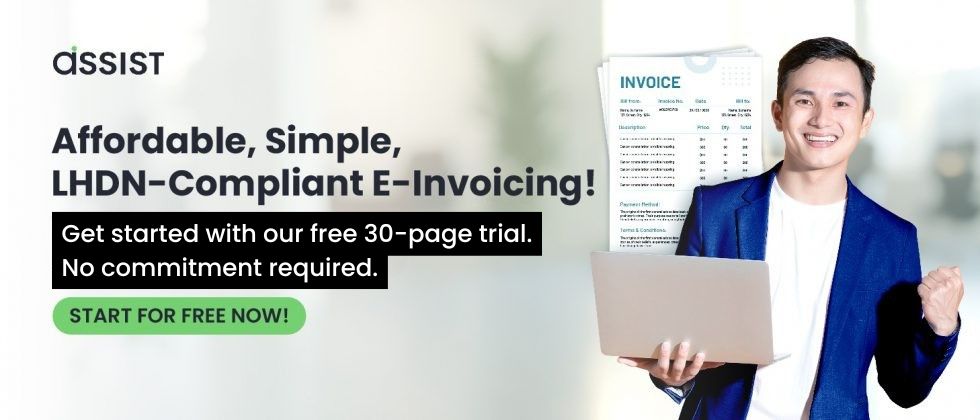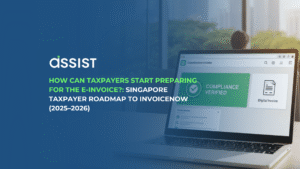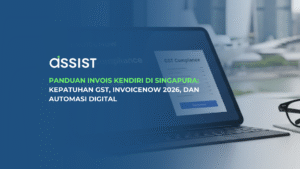As Malaysia embraces the digital transformation of its tax system, small and medium-sized enterprises (SMEs) face a crucial decision: choosing the right e-invoicing platform to comply with LHDN’s phased rollout starting in 2024.
Two popular solutions often compared are QuickBooks, a globally known accounting platform, and Assist.Biz, a Malaysia-centric e-invoicing system. In this guide, we offer a clear, unbiased comparison to help you make an informed choice — concluding with insights on which solution truly fits local needs.
What Is E-Invoicing and Why It Matters in Malaysia
E-invoicing is the digital submission and verification of business invoices under the supervision of the Inland Revenue Board of Malaysia (LHDN). The system replaces traditional paper invoicing, increasing transparency, reducing fraud, and ensuring compliance with tax regulations.
Key Timeline for Malaysian SMEs:
- August 2024: Large businesses begin compliance
- Mid-2025: All SMEs required to adopt e-invoicing
Choosing a compliant solution early ensures your business avoids last-minute technical issues or penalties.
Overview of QuickBooks and Assist.Biz
Before diving into features, here’s a quick overview of both platforms:
Feature | QuickBooks | Assist.Biz |
Origin | Global (USA) | Malaysia |
Focus | Full accounting suite | E-invoicing & compliance |
LHDN Compliance | Manual setup required | Built-in & automatic |
Support Language | English only | Bahasa Melayu & English |
QuickBooks:
A robust international accounting platform offering features like payroll, expense tracking, and invoicing. Ideal for large or multi-country businesses.
Assist.Biz:
A localized, compliance-first tool built specifically for Malaysian SMEs. Offers streamlined e-invoicing with minimal setup.
Feature Comparison: Compliance, Integration & User Experience
1. LHDN Compliance
- QuickBooks: Requires third-party configuration or manual compliance setup for LHDN standards.
- Assist.Biz: Natively supports MyInvois requirements — no external integration needed.
2. Integration & Workflow
- QuickBooks: Strong ecosystem with advanced modules; however, may be overkill for SMEs focusing solely on invoicing.
- Assist.Biz: Simple plug-and-play system. Connects to local banks and payment processors without technical complexity.
3. User Interface (UI)
- QuickBooks: Powerful but can feel overwhelming for smaller teams unfamiliar with full-suite accounting software.
Assist.Biz: Clean and minimalist UI tailored to local SME needs — from issuing e-invoices to submission in a few clicks.
Pricing & Affordability for Malaysian SMEs
Cost can be the deal-breaker for many SMEs. Here’s how they compare:
QuickBooks:
- Plans range from RM60 to RM120+ monthly
- Full e-invoice features require advanced tiers or third-party apps
Assist.Biz:
- Starts at a lower monthly rate
- Inclusive of e-invoicing without extra plugins or upgrades
Verdict: Assist.Biz is more cost-effective for SMEs focused solely on compliance and invoicing.
Customer Support & Local Adaptability
QuickBooks:
- Offers global 24/7 support
- Primarily English-based support
- Limited understanding of Malaysian tax context
Assist.Biz:
- Offers localized support in Bahasa and English
- Guides users through LHDN compliance steps
- Fast local turnaround times and contextual help
Final Verdict: Which Tool Should You Choose?
Both tools serve different audiences:
- Choose QuickBooks if you need a full accounting suite and have the resources to configure compliance workflows.
- Choose Assist.Biz if you’re an SME in Malaysia needing a plug-and-play tool for LHDN compliance with minimal cost and effort.
Why Assist.Biz Is the Best E-Invoice Solution for Malaysian SMEs
Assist.Biz offers:
- Instant LHDN compliance
- Affordable plans made for SMEs
- Responsive, local customer support
- Intuitive user experience tailored to Malaysian regulations
If you’re preparing for the 2025 e-invoice mandate, there’s no better time to get started.
👉 Register for Assist.Biz today and ensure your business stays ahead of Malaysia’s compliance curve.






